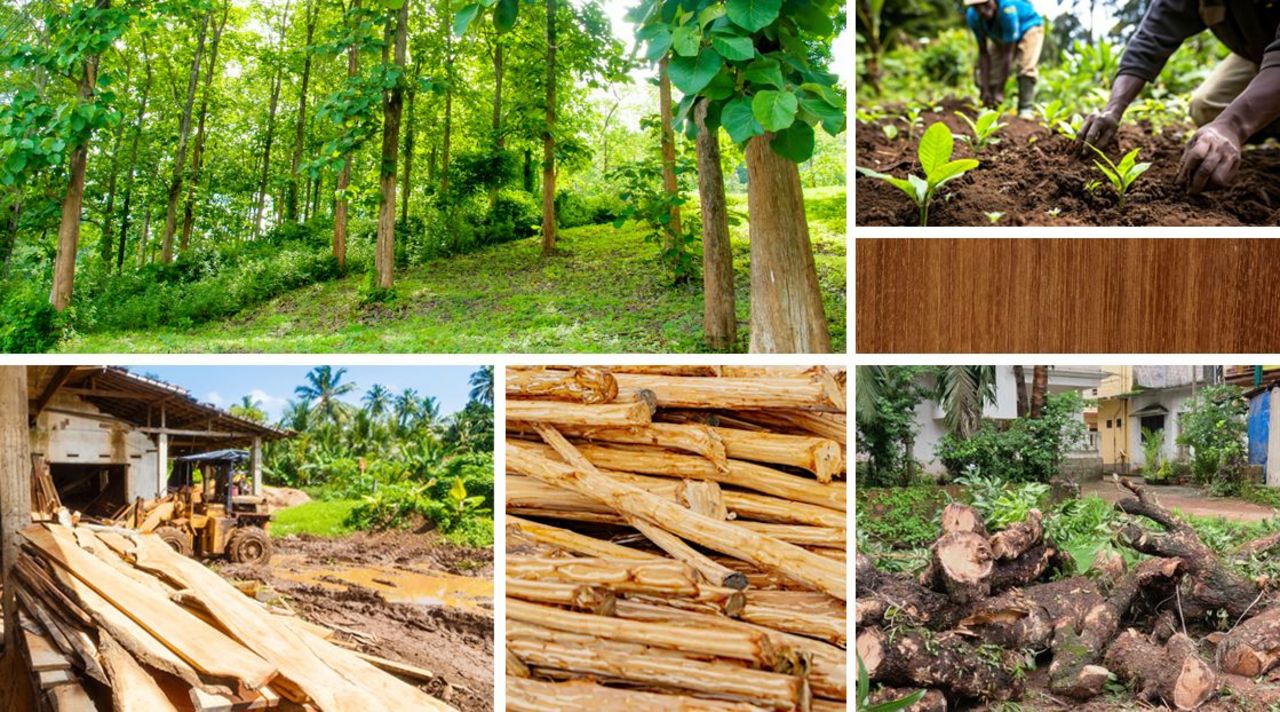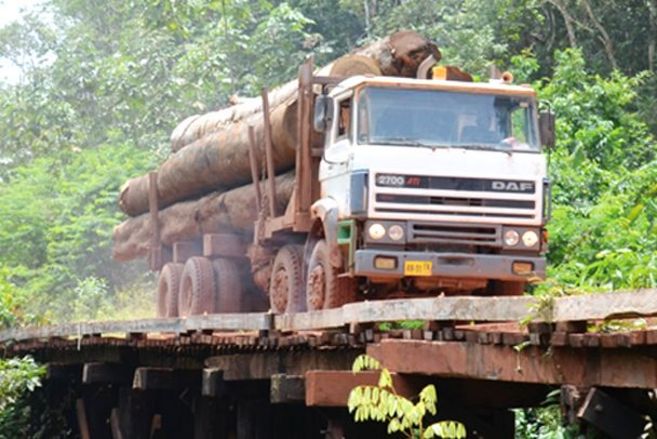Project
Smallholder- Teak

Promoting Quality Timber Production in Smallholders and Community-based Teak and Other Valuable Species Plantations in the Tropics
Smallholder timber plantations in the tropics can provide sustainable timber supply chains and other ecosystem services like carbon sequestration and soil conservation, benefiting both local communities and broader regions. Developing smallholder agroforestry with teak and other valuable trees improves environmental conditions and timber supply for local industries.
Background and Objective
Teak plantations cover 6.89 million hectares in 70 tropical countries, with 80% in Asia. Smallholder systems make up about one-fifth of the global teak estate, supplying national and international industries. However, productivity in smallholder plantations is generally low due to poor planting stock, inadequate practices, limited financing, and weak marketing.
Approach
The project aims to enhance the economic and social contributions of smallholder high-value tree species plantations in the tropics, supporting the achievement of the Sustainable Development Goals (SDGs).
The specific objectives of the project include:
1. Strengthen supply chains and management systems for smallholder and community-based plantations with improved planting stock and practices.
2. Analyze the feasibility of selected financing schemes and provide recommendations on how to enhance economic outcomes in smallholder and community-based plantations.
3. Strengthen regional and international collaboration, knowledge sharing, and policy development for sustainable smallholder plantations of high-value tree species.
Data and Methods
The Thünen Institute of Forestry will be responsible for conducting feasibility studies on four selected schemes: direct contracts/out-grower schemes, micro-lending/group lending, forest grower associations, and voluntary carbon markets
Our Research Questions
- Who are the key stakeholders in the financial ecosystem for smallholder plantation owners, and what roles do they play?
- What are the financial needs of smallholder plantation owners in the six project countries, and how do financial institutions and other schemes meet or fail to meet these needs?
- How do stakeholders perceive the selected financial schemes, and what alternative solutions do smallholders use to overcome financial constraints?
Thünen-Contact

Involved Thünen-Partners
Funding Body
-
International Tropical Timber Organization (ITTO)
(international, öffentlich)
Duration
11.2023 - 10.2026
More Information
Project status:
ongoing






